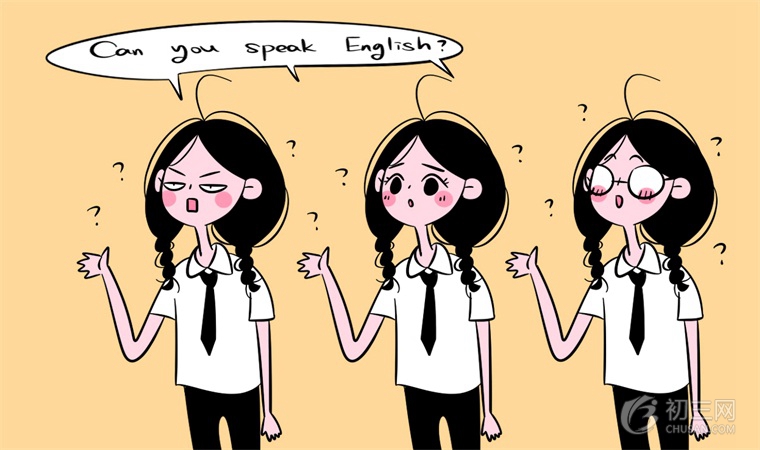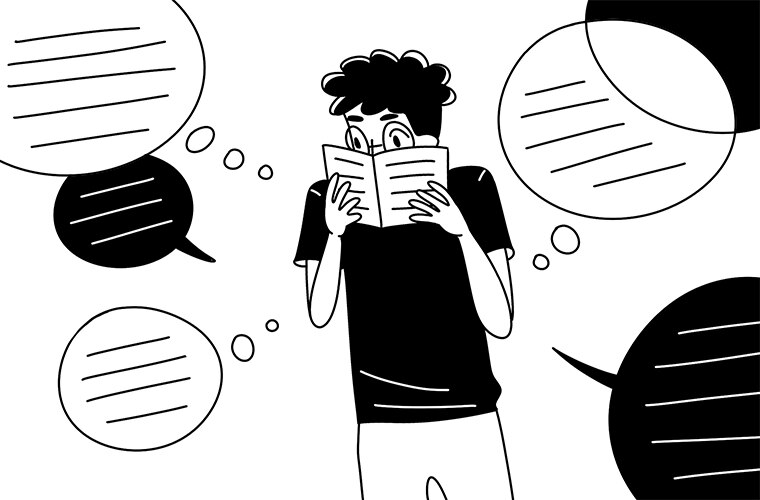英语知识点是必须掌握的, 下面初三网小编就大家整理一下2019中考英语必背知识点汇总,仅供参考。

由some, every, no, any分别与one, thing和body组合而成的代词, someone, something, somebody;everyone, everything, everybody;no one, nothing, nobody; anyone, anything, anybody
1、由every构成的不定代词大多具有“复数”的含义, 但并不能因此而将其用作复数, 因为此类词更强调个体, 使用时仍应以单数对待
Eg: Every student is trying their best to achieve high scores in the exam.
2、由no构成的不定代词表示的是一种否定意义, 作主语时, 谓语动词多用单数形式
Eg: Nothing is impossible if you put your heart in it.
1、 as…as…结构:你和汤姆是一样好的孩子。
You’re a boy as good as Tom.=You’re as good a boy as Tom.
2、 (1)too…to与 so…that sb. can’t…的句型转换:前者为简单句,主语只有一个,而后者为复合句,主语有两个,试比较:
The man was too angry to be able to speak.
The man was so angry that he wasn’t able to speak.
(2) too…to…与 not enough to句型的转换:
He is too young to get married.=He is not old enough to get married.
The book is too difficult for me to read.=
The book is not easy enough for me to read.
3、 形容词原级表示比较级含义:
约翰不象迈克那么苯。
John is not so stupid as Mike.
John is less stupid than Mike.
John is cleverer than Mike.
4、 用比较级表示最高级:约翰是班里最高的男生。
John is taller than any other boy in the class.
John is the tallest boy in the class.
5、 the more….. the more….表示“越……越……”:
The more books you read, the wider your knowledge is.
The more food you eat, the fatter you are.
表示相互关系的代词叫做相互代词。相互代词有each other 和one another两种形 式。在当代英语中, each other和one another没有什么区别。相互代词可在句中作宾语, 定语。作定语用时, 相互代词用所有格形式。
We should learn from each other / one another. (作宾语)
Do you often write to each other / one another? (作宾语)
We often borrow each other's / one another's books. (作定语)
The students corrected each other's / one another's mistakes in their homework. (作定语)
批注:这类代词的考查一般会在翻译中出现较多, 学生只要能知道常见的一些短语的意思即可, 比如help with each other 互相帮助, learn from each other互相学习, understand each other互相理解。
1.need和dare的用法
need和dare既可用作情态动词,也可用作实义动词。用作情态动词时,主要用于否定句和疑问句。用作实义动词时,可用于各种句式。
1.用作情态动词
--Need I come? --Yes, you must. --我需要来吗? --需要。
You needn´t telephone him now. 你现在不必打电话给他。
I don´t think you need worry. 我想你不必发愁。
She dare not go out alone at night. 她晚上不敢一个人出去。
How dare you say I´m unfair? 你竟敢说我不公平?
Not one of them dared mention this. 他们谁也不敢提这件事。
2.用作实义动词
You don´t need to do it yourself. 你不必亲自做这件事。
We need to tell them the news. 我们需要把这消息告诉他们。
We should dare to give our own opinion. 我们要敢于提出自己的观点。
He did not dare (to) look up. 他不敢抬头看。
I dare say he´ll come again. 我想他会再来的。 (cI dare say…为固定习语)
八、情态动词几组词的辨异
1. can 和be able to
1)情态动词can只有两种时态形式,现在式can和过去式could,而be able to有多种时态形式。
Mary can play the piano. She has been able to play it since she was 5.
玛丽会弹钢琴。她五岁起就会弹了。
2)用在过去时中,could经常表示能够做某事,事实上不一定去做,而was∕were able to则表示“过去做成了某事”。在否定句中两者可通用。
He could swim across the English Channel. But he didn´t feel like it that day.
他能游过英吉利海峡,但那天他不想游。
Yesterday I was able to get home before the heavy rain. 昨天我在下大雨前赶到了家里。
以上就是初三网小编为大家整理的2019中考英语必背知识点汇总 。

孔乙己是贫困潦倒的知识分子。在书中,孔乙己是一个知识分子,满口“之乎者也”,但是他很穷,还窃书,说过“读书人的事,怎么能叫窃,”被人嘲笑,他...

自然界产生氧气的化学方程式:光合作用的反应式为6CO2+12H2O→C6H12O6+6O2+6H2O。包括光反应和暗反应两个过程。需要具备光...

有的高校没有条件,只要学业水平成绩都合格就可以,比如中国科学院大学。有的需要平常学习考试成绩,比如北京外国语大学要求高三第一学期期末成绩在全...

在四则运算中,表示计算顺序,在小括号之后、大括号之前;表示两个整数的最小公倍数;表示取未知数的整数部分;在函数中,表示函数的闭区间;在线性代...

济南开设的最好的职高学校有:济南方信集团职业高中、济南公共交通职业高中。济南市公共交通职业高级中学是由济南市公共交通总公司承办,业务属济南市...

实然:是说事物实际上就是这样的,但不同于现实性(现实性指其有合理性和客观性);应然:就是应该是怎么样的意思,比如说这件事,就应该是那样的结果...

地中海气候一种夏季炎热干燥、冬季温和多雨,雨热不同期的气候类型。地中海气候冬季受西风带控制,锋面气旋频繁活动,气候温和,最冷月的气温在4-1...

碱石灰,又称钠石灰,碱石灰是白色或米黄色粉末,疏松多孔,是氧化钙(CaO,大约75%),水(H₂O,大约20%),氢氧化钠(NaOH,大约3...